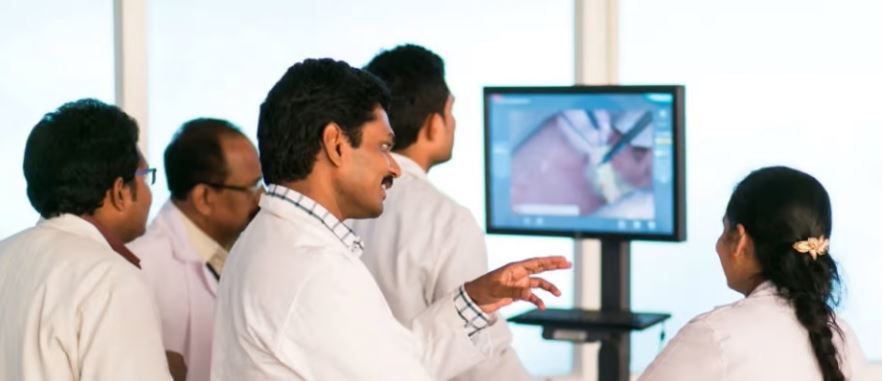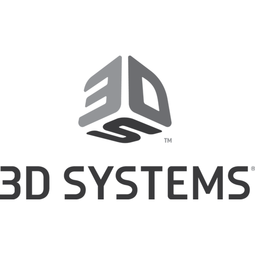
Technology Category
- Analytics & Modeling - Digital Twin / Simulation
- Sensors - Dimension & Displacement Sensors
Applicable Industries
- Education
- Healthcare & Hospitals
Applicable Functions
- Product Research & Development
- Quality Assurance
Use Cases
- Virtual Prototyping & Product Testing
- Virtual Training
Services
- Testing & Certification
- Training
The Customer
GSL SMART Lab
About The Customer
Founded in 2012 by Dr.Bhaskara Rao Ganni, GSL SMART Lab is a collective effort of the GSL College of Medicine, the GSL College of Nursing and Health Science. It serves as an incorporated center point of training healthcare professionals with a definitive goal of enhancing quality and safety of care. The lab is directed by Dr. Sandeep Ganni, a research fellow at Catharina Hospital in the Netherlands. The lab aims to be a world-class surgical and medical training center where physicians and healthcare professionals could learn skills through simulation training, with a focus on patient safety and healthcare in India.
The Challenge
The GSL SMART Lab, a collective effort of the GSL College of Medicine and the GSL College of Nursing and Health Science, was facing a challenge in providing superior training to healthcare professionals. As clinical medicine was becoming more focused on patient safety and quality of care, the need for medical simulation to bridge the educational gap between the classroom and the clinical environment was becoming increasingly apparent. Dr. Sandeep Ganni, the director of the GSL SMART Lab, envisioned a world-class surgical and medical training center where physicians and healthcare professionals could learn skills through simulation training. He was looking for different simulators for different specialties to provide both basic and advanced simulation training. For laparoscopic surgery, he was interested in a high fidelity simulator that could provide basic surgical and suturing skills training for international accreditation as well as specific hands-on training in complex laparoscopic procedures for practicing physicians in India.
The Solution
The GSL SMART Lab purchased 3D Systems’ LAP Mentor simulator for hands-on practice of basic skills and surgical procedures. A 6-month course using the LAP Mentor was designed to provide surgical and suturing skills to acquire LSS certification. The course is available for surgical residents from GSL College of Medicine as well as surgical residents in medical colleges throughout India. In addition, 8-10 month courses are offered with a specific training curriculum for advanced laparascopic surgical procedures. Trainees practice procedures, crisis management and team work by simulation. This simulation-based training is one of a kind in India. The LAP Mentor offers a specific LSS course which prepares the trainee for the LSS examination and subsequent accreditation. It is an important tool for learning and practicing the surgical skills and procedures needed to successfully receive the LSS Certification of Accreditation as well as the actual simulator for conducting the LSS examination.
Operational Impact
Quantitative Benefit

Case Study missing?
Start adding your own!
Register with your work email and create a new case study profile for your business.
Related Case Studies.

Case Study
Hospital Inventory Management
The hospital supply chain team is responsible for ensuring that the right medical supplies are readily available to clinicians when and where needed, and to do so in the most efficient manner possible. However, many of the systems and processes in use at the cancer center for supply chain management were not best suited to support these goals. Barcoding technology, a commonly used method for inventory management of medical supplies, is labor intensive, time consuming, does not provide real-time visibility into inventory levels and can be prone to error. Consequently, the lack of accurate and real-time visibility into inventory levels across multiple supply rooms in multiple hospital facilities creates additional inefficiency in the system causing over-ordering, hoarding, and wasted supplies. Other sources of waste and cost were also identified as candidates for improvement. Existing systems and processes did not provide adequate security for high-cost inventory within the hospital, which was another driver of cost. A lack of visibility into expiration dates for supplies resulted in supplies being wasted due to past expiry dates. Storage of supplies was also a key consideration given the location of the cancer center’s facilities in a dense urban setting, where space is always at a premium. In order to address the challenges outlined above, the hospital sought a solution that would provide real-time inventory information with high levels of accuracy, reduce the level of manual effort required and enable data driven decision making to ensure that the right supplies were readily available to clinicians in the right location at the right time.

Case Study
Gas Pipeline Monitoring System for Hospitals
This system integrator focuses on providing centralized gas pipeline monitoring systems for hospitals. The service they provide makes it possible for hospitals to reduce both maintenance and labor costs. Since hospitals may not have an existing network suitable for this type of system, GPRS communication provides an easy and ready-to-use solution for remote, distributed monitoring systems System Requirements - GPRS communication - Seamless connection with SCADA software - Simple, front-end control capability - Expandable I/O channels - Combine AI, DI, and DO channels

Case Study
Driving Digital Transformations for Vitro Diagnostic Medical Devices
Diagnostic devices play a vital role in helping to improve healthcare delivery. In fact, an estimated 60 percent of the world’s medical decisions are made with support from in vitrodiagnostics (IVD) solutions, such as those provided by Roche Diagnostics, an industry leader. As the demand for medical diagnostic services grows rapidly in hospitals and clinics across China, so does the market for IVD solutions. In addition, the typically high cost of these diagnostic devices means that comprehensive post-sales services are needed. Wanteed to improve three portions of thr IVD:1. Remotely monitor and manage IVD devices as fixed assets.2. Optimizing device availability with predictive maintenance.3. Recommending the best IVD solution for a customer’s needs.

Case Study
HaemoCloud Global Blood Management System
1) Deliver a connected digital product system to protect and increase the differentiated value of Haemonetics blood and plasma solutions. 2) Improve patient outcomes by increasing the efficiency of blood supply flows. 3) Navigate and satisfy a complex web of global regulatory compliance requirements. 4) Reduce costly and labor-intensive maintenance procedures.

Case Study
Cloud-based healthcare solution for Royal Philips
Royal Philips wanted to launch its cloud-based healthcare solution HealthSuite Digital Platform in China to deliver services to help cope with challenges related to urbanization and population growth. Philips wanted to achieve this goal by combining mobile, cloud computing and big data technologies. To bring this platform and product to market, Philips required cloud computing and local technical service capabilities in China, in addition to a flexible IT infrastructure that could handle user requests.








